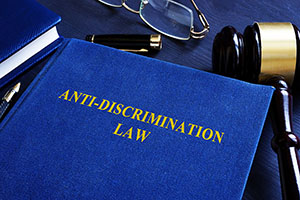Equality Act Reintroduced
 On March 13, Reps. David Cicilline (D-RI) and Brian Fitzpatrick (R-PA) and Sens. Jeff Merkley (D-OR), Tammy Baldwin (D-WI) and Cory Booker (D-NJ) introduced legislation which would make employment discrimination and other forms of discrimination based on sexual orientation and gender identity unlawful.
On March 13, Reps. David Cicilline (D-RI) and Brian Fitzpatrick (R-PA) and Sens. Jeff Merkley (D-OR), Tammy Baldwin (D-WI) and Cory Booker (D-NJ) introduced legislation which would make employment discrimination and other forms of discrimination based on sexual orientation and gender identity unlawful.
The Equality Act of 2019 would amend existing civil rights law — including the Civil Rights Act of 1964, the Fair Housing Act, the Equal Credit Opportunity Act, the Jury Selection and Services Act, and several laws regarding employment with the federal government — to explicitly include sexual orientation and gender identity as protected characteristics. The legislation also amends the Civil Rights Act of 1964 to prohibit discrimination in public spaces and services and federally funded programs on the basis of sex.
For a long period following passage of the Civil Rights Act of 1964, federal courts uniformly held that Title VII did not prohibit employment discrimination on the basis of sexual orientation or gender identity. Two U.S. Supreme Court decisions have challenged much of that prior reasoning and as a result some subsequent decisions have allowed Title VII claims to proceed where the plaintiff can demonstrate that he or she was the victim of unlawful sex discrimination in the form of gender stereotyping or sexual harassment.
Despite those decisions, the Human Rights Campaign finds that “50 percent of LGBTQ Americans live in the 30 states that still lack statewide legal non-discrimination protections, leaving their residents and visitors at risk of being fired, denied housing or refused service because of who they are or who they love.”
In anticipation of the Equality Act’s reintroduction, CUPA-HR joined 43 other trade associations in sending a letter to Capitol Hill in support of the provisions in the bill that provide employment non-discrimination protections based on sexual orientation and gender identity. Specifically, the letter states that “Title VII of the Civil Rights Act provides a well-understood legal framework for preventing and addressing discrimination. Amending the Act to include protections based on sexual orientation and gender identity is a sensible approach to ensure consistency with other protected classes.”
Since 1974, seven separate pieces of legislation to prohibit employment discrimination on the basis of actual or perceived sexual orientation or gender identity have been introduced in Congress. CUPA-HR supported similar legislation of Sen. Merkley’s, the Employment Nondiscrimination Act (ENDA), in the 113th Congress. The legislation passed the Senate but was not voted on in the House. The Equality Act of 2019 may have a stronger chance of being signed into law as it already has the bipartisan support of more than 280 members of Congress and industry support from 165 individual corporations.


